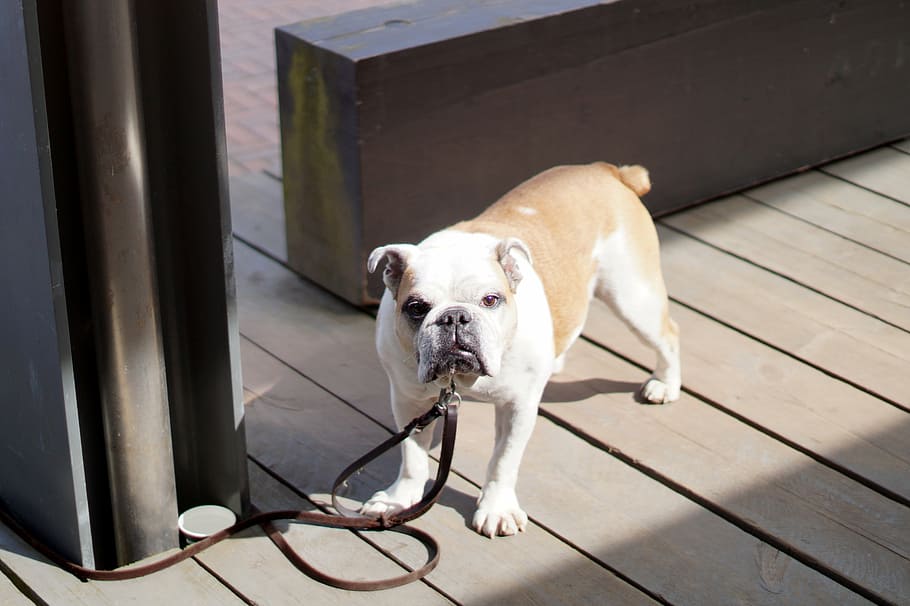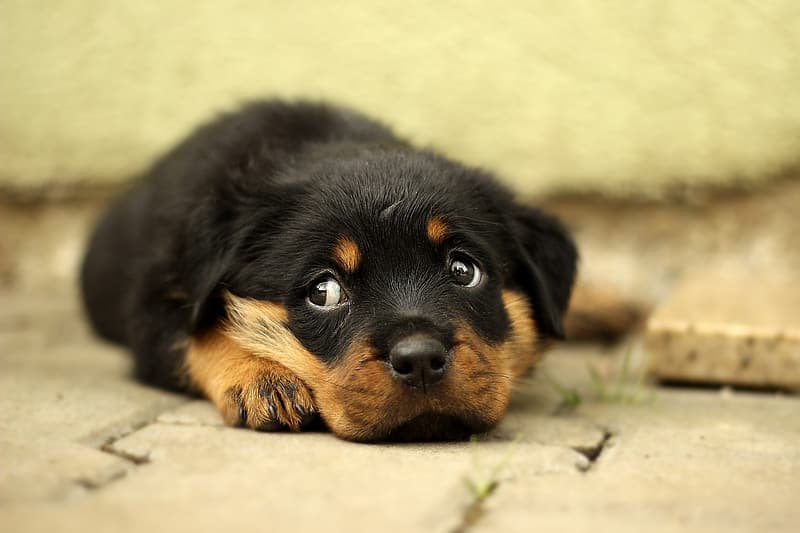
Coprophagia is the tendency that a dog may have to eat its own excrement or that of other animals. It is a behavioral disorder in dogs that can be caused by a number of different things. Eating its droppings is not natural for a domestic dog. It is a fairly common behavioral disorder in dogs. This bad habit of a dog can be difficult to treat, but it does not represent a major health hazard.
Good to know: coprophagia is a natural attitude in certain species of rodents.
Cases of natural coprophagia in dogs

Certain coprophagic behaviors are normal in dogs:
– The wild dog: in the wild, dogs may ingest the feces of other species for food, or their own feces to mask their odor from predators.
– Bitches that have given birth: A bitch tends to eat her puppies’ feces to avoid attracting predators.
– The puppy: during its discovery period (less than six months), the puppy may inadvertently ingest feces.
In most cases, the dog’s coprophagia is still a behavioral abnormality.
Why does the dog eat its droppings?
Coprophagic behavior can occur for a variety of reasons: it can be a behavioral disorder, a feeding problem, or a disease.
Behavioral disorders
In many cases, coprophagia is a behavioral problem. Through this act, the dog tries to express itself or to attract attention. This attitude can be due to many situations:
– Anxiety state: a dog left in a kennel or crate may develop these behavioral problems.
– Fear of being punished: a dog may eat its droppings so that its owner doesn’t realize that it has defecated in the house.
– Lack of attention: a dog may start eating his feces because his environment is too dirty.
Good to know: If your dog is coprophagic for behavioral reasons, a canine behaviorist can help you pinpoint the source of the problem.
Feeding problems
Canine coprophagia can also be triggered by an unbalanced diet:
– Irregular food;
– rations too poor;
– vitamin deficiency;
– food too rich in starch;
– and the like.
Diseases
Finally, this problem may be triggered by a health concern in the dog: chronic gastritis, parasites, food allergies, enteritis, etc.
Good to know: if your dog suddenly starts eating his excrement for no apparent reason, remember to contact a veterinarian.
What are the health risks associated with coprophagia?
Canine coprophagia is primarily a hygiene problem. It creates a certain distance between the dog and the owner who may be disgusted by this behavior.
However, the health risks induced by canine coprophagia are very low. The dog’s gastric system can eliminate the majority of bacteria. There remains the risk of transmission of some intestinal parasites, especially if the dog eats the excrement of other animals. In any case, it is important to treat coprophagic behavior.
What should I do if my dog eats its droppings?
If your pet starts eating feces, it is important to take certain measures.
First of all, identify the origin of this behavior. Contact a veterinarian to begin with, and if necessary, contact a canine behaviorist.
Different reflexes can help you to suppress this behavior:
– Regularly clean up the dog’s excrement.
– Avoid excessive punishments (they can reinforce this behavior).
– Use medications that make the excrement aversive to the dog.
– A change in diet can also help a dog to give up this bad habit.
Hope the above helps you determine how your dog should be treated if it suffers from coprophagia. Take good care of your pet!

2 Replies to “Does Your Dog Suffer From Coprophagia?”